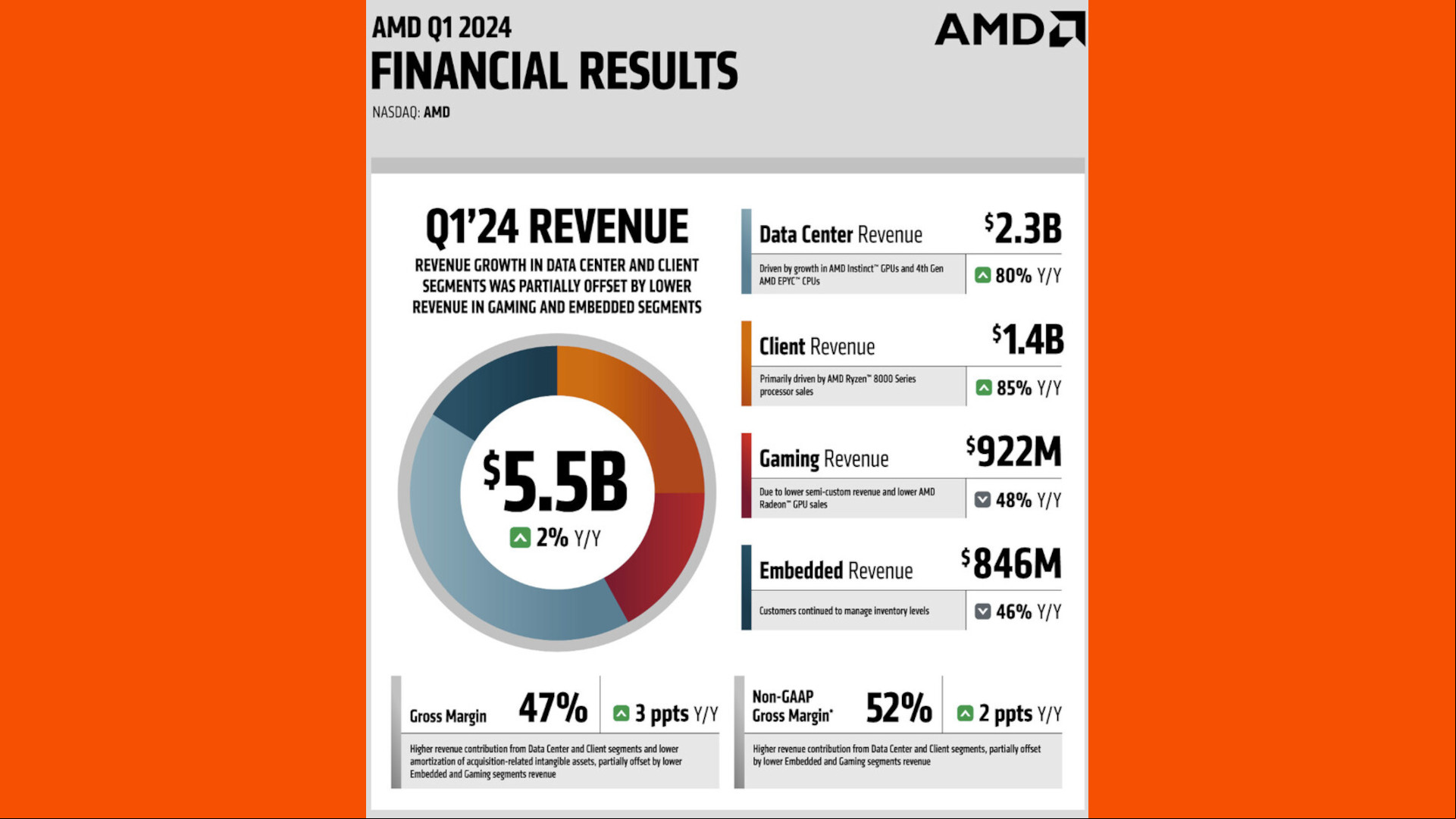The numbers don't lie, AMD is struggling to sell both its custom and discrete Radeon GPUs. To make matters worse, this decline in sales not only encomes the past two financial quarters, but applies to year-on-year figures too.
Try as best graphics cards to more budget-friendly options, are sadly failing to make a significant impact. While this chasmic gap in popularity has been well understood for some time, AMD's latest financial reports show how much of a problem Radeon is proving for the company's cash flow.
In its Q1 FY24 statement, AMD reports a revenue of $5.5 billion, up 2% from last year, primarily driven by its 'Data Center' and 'Client' segments which are up 80% and 85%, respectively. However, revenue from its 'Embedded' segment is down 46% year-on-year (YoY) but the biggest decline comes from 'Gaming', coming in at a painful 48%.
By itself, this steep decrease is concerning, but paired with the knowledge that this is down 33% from the previous quarter gives further cause for alarm. Suffice to say, Radeon GPU sales have nosedived.
These figures confirm what was partially gleaned by the GeForce RTX 4090 proving more popular than any other AMD GPU.
While not confirmed, this continuous downward trajectory of Radeon graphics cards is likely what inspired RDNA 4 microarchitecture can turn the ship around remains to be seen.
While a disinterest in discrete Radeon graphics cards is partly responsible for this decrease in revenue, AMD is also hurting from a ROG Ally, haven't proven a strong bolster.
It's clear that a change in direction is needed for Radeon and I hold out hope that AMD can stage a Ryzen-style comeback. Like it or not, it's the only real competition Nvidia's GeForce GPUs have given Intel is still finding its feet with Arc.
To the company's credit, it does put up a strong effort when it comes to rasterization, as we saw in our Radeon RX 7800 XT review. Even so, it isn't enough of a strength to lean on when ray tracing and performance enhancing features are becoming more important by the day, and AMD is decidedly on the backfoot compared to Nvidia in this regard.
With this in mind, the Ryzen 7 7800X3D U does.

